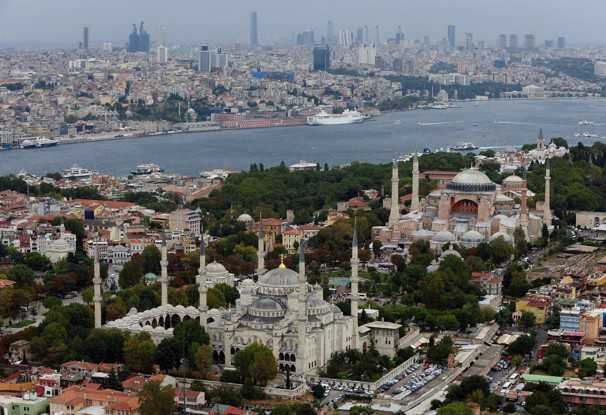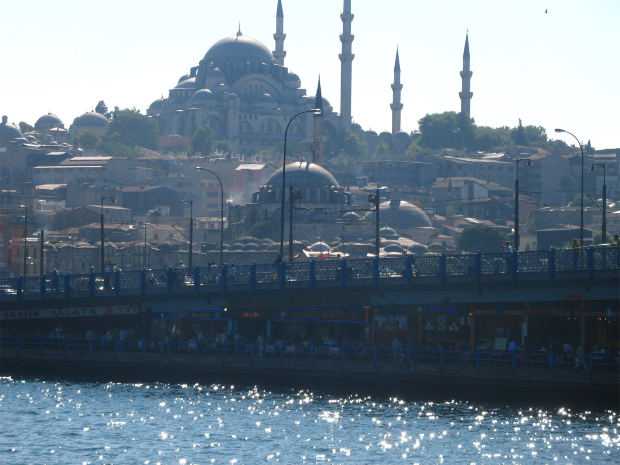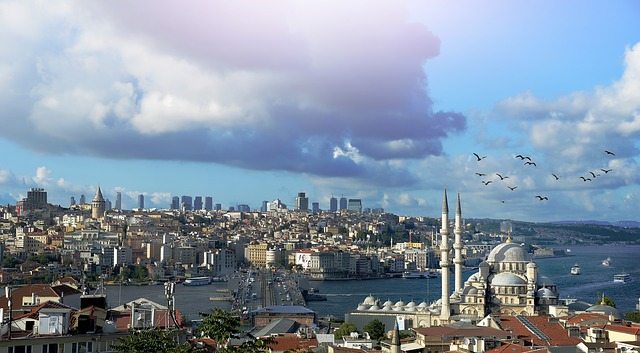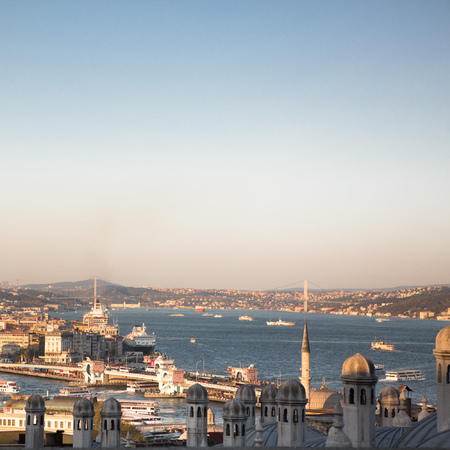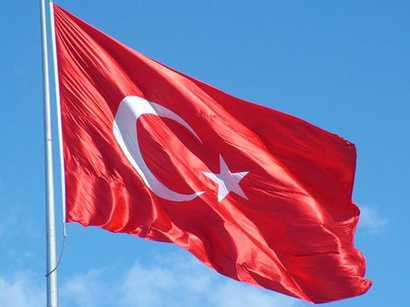By M K Bhadrakumar
The Israelis are expected to know something extra about their tough neighborhood that we do not know. In all probability, the two Israeli officials – Shalom Turjeman and Yoram Turbowitz – knew when they set out for Ankara on Tuesday that Turkey’s government was far from dysfunctional or was going to be in any danger of extinction within the next 24 hours.
The two advisors to (outgoing ) Prime Minister Ehud Olmert were on a sensitive mission to hold the fourth round of peace talks with Syria under Turkish mediation. The format of the talks is such that Turkish officials shuttle between the Israeli and Syrian diplomats, who do not come face to face. The Turks seem to have done a masterly job. On Monday, Syria’s ambassador to the United States, Imad Mustafa, speaking on a public platform in Washington, said, “We [Syria and Israel] desire to recognize each other and end the state of war.”
“Here, then, is a grand thing on offer. Let us sit together, let us make peace, let us end once and for all the state of war,” Imad added, referring to the peace talks brokered by Turkey. Clearly, Turkey’s political stability is no longer just a national issue of 80 million Turks. It is a vital issue today for the international community. And Turkey’s role in the Israel-Syria peace talks is only the tip of the iceberg. In the highly volatile Middle East situation, Turkey also facilitated contacts between US National Security Advisor Stephen Hadley and Iranian Foreign Minister Manouchehr Mottaki. (The two adversaries visited Ankara recently.) Furthermore, Turkey has waded into the Iraq project.
Besides, the North Atlantic Treaty Organization (NATO) is poised to spread to the northern shores of the Black Sea. The new cold war has arrived in Turkey. Moscow is determined not to repeat its historic mistake of driving Turkey into the NATO camp, as it did in the 1950s.
Russian President Dmitry Medvedev is scheduling a visit to Turkey. A Moscow analyst noted, “Atomstroyexport [Russia’s nuclear power equipment and service equipment monopoly] is ready to provide Turkey with a project for the construction of a nuclear power plant [NPP] that will be less expensive and more reliable than its American counterparts. Such NPPs will help Turkey to consolidate its position in the regional energy market, especially considering Iran’s nuclear energy problems. Moscow has long been hinting to Ankara that it is best to give priority to economic expediency, especially in the energy industry.”Ambassador M K Bhadrakumar was a career diplomat in the Indian Foreign Service. His assignments included the Soviet Union, South Korea, Sri Lanka, Germany, Afghanistan, Pakistan, Uzbekistan, Kuwait and Turkey.
(Copyright 2008 Asia Times Online (Holdings) Ltd. All rights reserved. Please contact us about sales, syndication and republishing.)
Source: Asia Times, Aug 2, 2008


